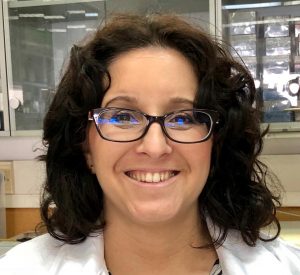Melanoma Therapy Breakthrough
Fighting Melanoma: The Challenge of Drug Resistance
Technion researchers present a new approach to overcoming anticancer drug resistance in melanoma.
Melanoma often presents a rapid resistance to molecular anti-cancer therapies. Now, in a discovery that can one day help address this major clinical challenge, researchers from the Technion’s Rappaport Faculty of Medicine have uncovered two proteins which, together, play a major role in drug resistant Melanoma.
The research was published in the Journal of Investigative Dermatology and was led by Prof. Amir Orian of the Rappaport Faculty of Medicine and Dr. Emily Avitan-Hersh of the Faculty of Medicine and Rambam Dermatology Department (as part of a doctoral dissertation) in collaboration with Prof. Ze’ev A. Ronai of the Sanford Burnham Prebys Medical Discovery Institute in California.
According to world statistics, melanoma is the deadliest form of skin cancer, killing one person every hour. In the U.S. alone, about 6,850 people are expected to die from the disease this year, most of them men. Although there have been advances in targeted and immunotherapy melanoma treatments in recent years, a substantial percentage of patients fail to respond or develop resistance to such therapies.
In many cases, melanoma results from a mutation in a gene coding for an enzyme called BRAF. This mutation promotes uncontrolled cell division and prevents programmed cell death, resulting in the development of cancer/melanoma tumors. Several years ago, new drugs that inhibit BRAF became available. These drugs are currently at the forefront of treating the disease, but unfortunately, melanoma cells develop rapid resistance to the same drugs − reducing their effectiveness and patients’ survival rates.
A “hallmark” observation in melanoma tumors from the patients are “stabilized oncoproteins.” Oncoproteins are cancer-causing proteins, which have the ability to turn healthy cells into cancerous cells. They are usually short-lived, however in such melanoma tumors they abnormally stabilize, thereby increasing their levels and pro-cancer activity. In previous experiments by Prof. Orian’s group, the oncoproteins were found to be protected against their natural protein degradation process by a protein called RNF4.
The team observed that high RNF4 levels in melanoma tumors correlate with poor prognosis and treatment resistance. Even more notably, they found that the tumorigenic properties (tumor growth, formation, and therapy resistance) of RNF4 in melanoma requires another protein: the translation initiation factor, eIF2α. RNF4 binds to eIF2α and stabilizes it, increasing p-eIF2α levels. In turn, p-eIF2α is required for RNF4 activities including the development of resistance, creating a devastating positive feedback loop.
The study spans the entire spectrum between basic research and clinics, from cell culture to xenografts in model mice to melanoma patients. The findings showed that increased levels of RNF4 characterize about 40% of melanoma patient tumors.
The elucidation of the RNF4-dependant pathway in melanoma and its dependency on eIF2α has the potential to enable doctors to predict how a patients’ melanoma will respond to targeted therapies, allowing doctors to better personalize treatments for individual patients. The findings also present an opportunity for researchers to find a new pharmacological treatment to selectively block this pathway, effectively destroying such treatment-resistant melanoma tumors.
The study was conducted together with graduate students Yamen Abu Ahmad and Avital Oknin Vaisman of the Orian Lab and Rambam Senior Pathologist Yaniv Zohar, MD, PhD.
The research was supported by Fine and Wolf Fellowships, an Atidim research grant, National Cancer Institute Grants, the Israel Cancer Research Fund (ICRF) project grant, the German‒Israeli Foundation for Scientific Research and Development, and the Flinkman-Marandy Family Cancer Research Grants.
Prof. Amir Orian MD/PhD is the head of the Stan and Ruth Flinkman Laboratory for the Study of Genetic Networks at the Faculty of Medicine and a member of the Technion’s Integrated Cancer Research Center (TICC).
Dr. Emily Avitan-Hersh MD/PhD is a Lecturer in the Technion Faculty of Medicine, Deputy Director of the Department of Dermatology, and a member of the Rambam Clinical Research Institute, Rambam Medical Center.
Click here for the paper




